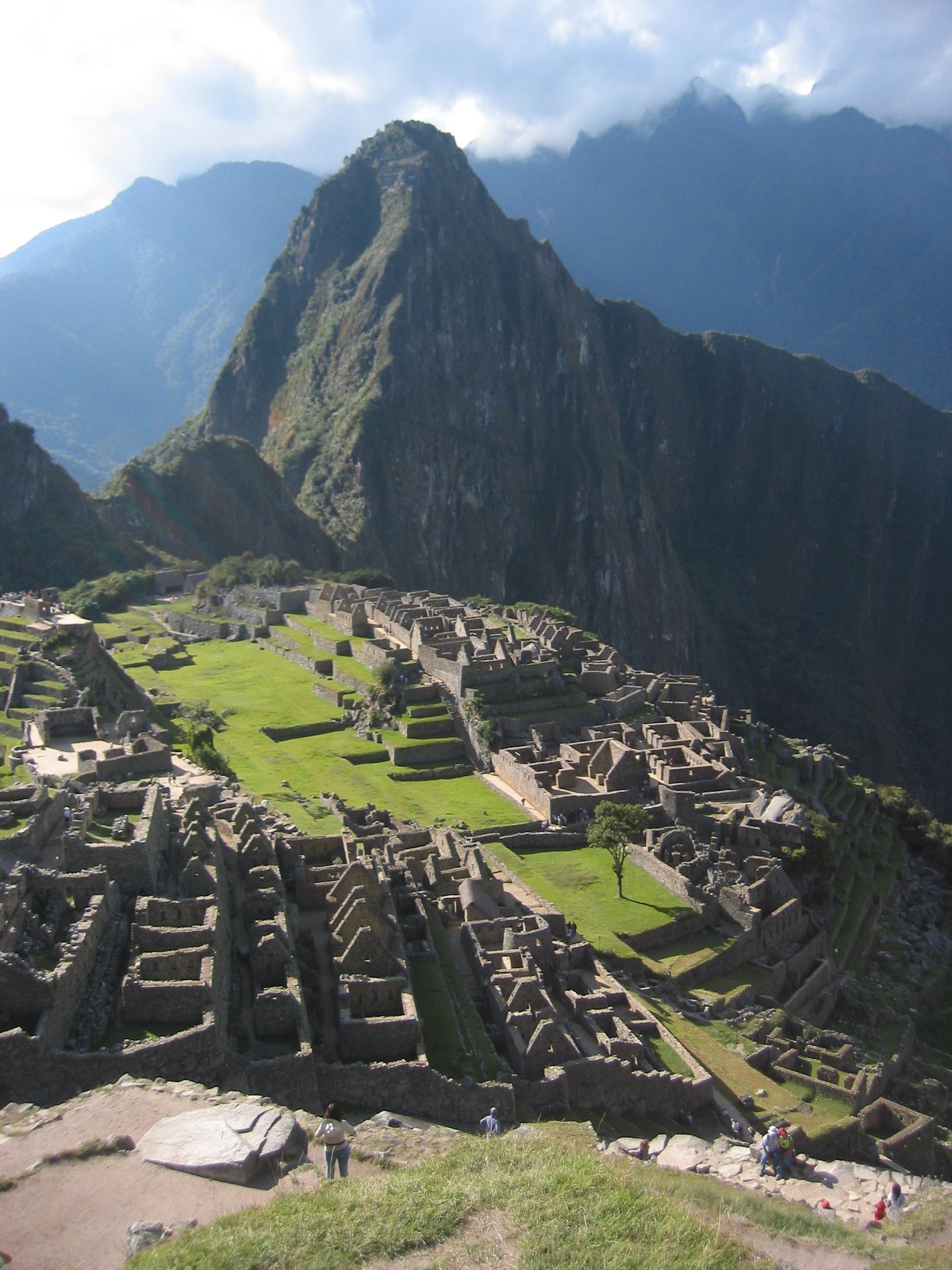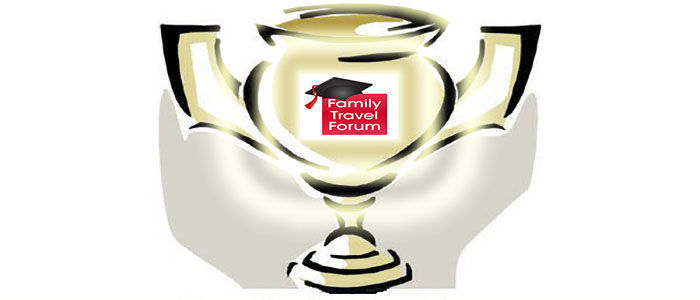I held the seat in front of me in a white-knuckle grip as our tour bus negotiated the switchbacks and hairpin turns necessary to ascend from the valley town of Aguas Calientes to our destination in the peaks above. The week I had spent in Peru – a week of churches and museums, altitude sickness and food poisoning – was soon to be eclipsed by my time visiting Machu Picchu.
Honorable Mention 2009 FTF Teen Travel Writing Scholarship
As I stumbled off the bus that carted our pack of motion-sick gringos to the top, I was stricken by the place. Its solemnity and mystery made me feel alienated from the boy who had spent the previous day confined to his hotel room, alternating feverish naps with mad dashes to the toilet. “Pilgrim” isn’t the right word, but “tourist” isn’t, either.
Many aspects contribute to the site’s gravitas: the verdant surroundings, the hush that the mountains and gentle breeze lend the place, and the buildings themselves, made with stones so well-fitted to each other that 500 years of neglect and earthquakes couldn’t crumble them. Without jet streams or smog to remind us of the rest of civilization, the site truly felt timeless. As my family and I trekked across the ruins, we kept our voices to a whisper, speaking sparingly and reverently. Churches aren’t this quiet.
For all Machu Picchu has been studied, not much is known about their inhabitants. But what archeology can’t unearth, I think knowledge of human nature can. While the splendor of the ruins makes one inclined to believe the inhabitants of Machu Picchu existed on a plane above mere mortals, I see otherwise. Unless the Inca were another species altogether, they must have had daily routines, insecurities, stresses and silly altercations just like modern day people. Perhaps, then, the place feels so special because it is the rare instance of splendor unfiltered by the smallness and pettiness that can engulf everyday life. It is the very best the Inca could offer, and a telling reminder that only a minute portion of a society, or individual for that matter, lives on after they cease to exist.
What then of our culture? What will our skyscrapers and interstates say about us? Will we regret having a Trump Tower but no Washington or Lincoln Tower? If it is only our most lasting achievements that endure, we must give great consideration to what those achievements are; much of our society is white noise that will one day be forgotten, with only our Machu Picchu remaining.
What mementos of our heritage should be carved in stone isn’t for me to decide. And while I’ll probably never own a skyscraper or have my face carved into a mountainside, I do have control over the events that will shape my own life. I understand that there are petty arguments to be had and choices to make and that these all shape my daily life. But if my experience at Machu Picchu taught me anything, it is that twenty years from now, let alone 500, I won’t be defined by test scores or what high schoolers think of me. In the end only the truly important things are worth worrying about.
And that, to me, is freedom.
Dear Reader: This page may contain affiliate links which may earn a commission if you click through and make a purchase. Our independent journalism is not influenced by any advertiser or commercial initiative unless it is clearly marked as sponsored content. As travel products change, please be sure to reconfirm all details and stay up to date with current events to ensure a safe and successful trip.
3 Replies to “Machu Picchu”
Comment on this article


Awesome essay. I like the way you described Machu Picchu. Im Peruvian by the way (:
Hey, I was there at the end of June. Great description of gringos =]
Great essay! I wrote the one entitled “Machu Picchu, Anyone?” Congrats on the atlas. = ) I was in Peru this last July and loved every moment. Beautiful isn’t it? The people have a profound sense of contentment in their simplicity.